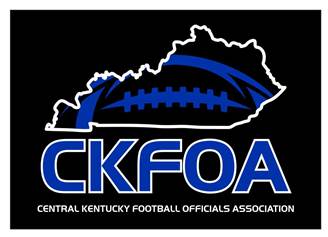General Instructions for Football Clock Operators – 2018
A. The clock operator should report to the game officials at the stadium at least 30 minutes before game time for the following
purposes:
1. To synchronize timer’s watch with official game time as established by the game official responsible for timing.
2. To advise game officials whether the clock operator will be in the press box or on the sideline. Determine procedure for
communication with timer and check this procedure prior to the game.
3. To discuss coordination of starting, stopping and adjusting the clock in accordance with the playing rules.
4. To discuss if the game clock horn (mechanical signal) can be turned off. Preference is for the game clock horn (mechanical
signal) to be turned off for the duration of the game.
B. The field clock is normally started 30 minutes before game time. The halftime intermission will start on the referee’s signal
when the players and game officials leave the field. All pregame and halftime activities will be synchronized with the official
game clock. The mandatory three-minute warm-up period will be put on the clock after the intermission time has elapsed and
shall be started immediately.
C. The clock operator shall have an extra stopwatch available. In case of failure of the game clock, the clock operator shall
immediately contact the game officials, giving them the correct data regarding the official time. The game official responsible
for timing will then pick up the correct game time on the stopwatch. If the field clock becomes inoperative and is subsequently
repaired, it will not be used again until the next period or when the referee determines it is operational. The public-address
announcer will indicate the field clock will not be official until the malfunction is corrected and a subsequent announcement is
made on the public-address system.
D. Game Procedures:
1. The clock operator is an integral member of the officiating crew and game administration. Unfair advantages occur when
the game clock is not started or stopped correctly by rule. Great care must be exercised to see that no time lag occurs in
starting or stopping the clock.
2. On all free kicks, the nearest game official(s) will signal the legal touching of the ball by indicating that the clock should start.
3. Any game official may signal a time-out; therefore, the operator should be alert to stop the clock.
4. The incompletion signal will stop the clock.
5. The clock operator will automatically stop the clock following a touchdown, field goal, touchback or safety after the
appropriate scoring signal has been made.
6. After the clock has been stopped, the referee will start it again on the referee’s start-the-clock signal and if no such signal is
given, the operator will start the clock on the snap without the signal from the referee.
7. The referee may start the clock again in certain instances before the ready-for-play signal.
8. The try is not a timed down.
9. There are instances when a period shall be extended by an untimed down. During these extensions, leave the clock at :00. Do not reset the clock for the next period until the referee declares the period over by facing the press box and holding the ball overhead.
10. Each state association may decide whether or not to utilize a running clock in certain situations, and the procedures for those situations.
Link: https://www.nfhs.org/sports-resource-content/general-instructions-for-football-clock-operators-2018/
